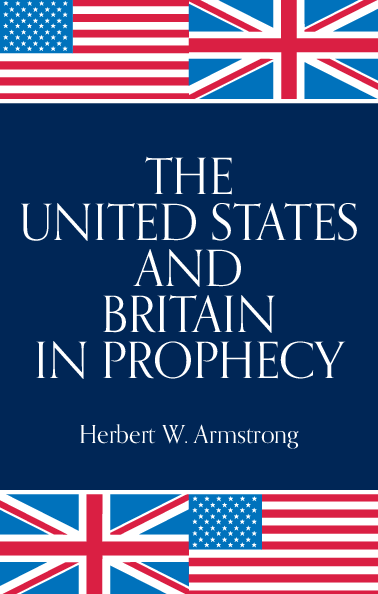The United States and Britain in Prophecy
 ISBN: 9781558250956
ISBN: 9781558250956
This book is published in what might be the most ideal way. The printing press is subsidized by the donations of congregations of the Church from which the book issues. Herbert Armstrong, the author, established a Church, although it appears that that Church has now, as of 2009, rejected those initial teachings and have substituted some other. This is probably “not good” as what Armstrong has to say is more correct than incorrect.
The basis of the book is that there are prophecies concerning Israel that do not appear to have been fulfilled. It is the contention of Armstrong that these promises have indeed been fulfilled, only the identity of the tribes fulfilling these scriptures has been lost. The key to this mystery, suggests Armstrong, is understanding who Israel is.
Armstrong takes careful pains to separate the term “Jew” from the label of “Israel”. The Jews, he argues, are people from the tribe of Judah. The Israelis, he argues, are not the same as the Jews. While this is a great argument in terms of semantics, it is not an especially good one in practice. One need only remember World War II history to recall that anyone that looked a certain way was labeled Jewish. If a person happened to be from the tribe of Benjamin, for instance, that was not a nuance the Nazi regime cared to make. Anything that did not fit the definition of Aryan was placed in a discard pile. Anything that looked Jewish, whatever tribe that might be, was placed first on that heap.
Next, Armstrong reveals who he thinks the identity of Britain and the United States is in terms of prophetic fulfillment. While the idea he presents here is not now perhaps a new one, it was definitely a newer concept when the book was first published back in 1980. The key to unraveling the identity of these places concerns, in part, what the definition of a Jew is or isn’t, along with the identity crisis that the US and Britain are having due to their own self-inflicted amnesia.
Armstrong deduces much about Britain and its role to Israel that are not necessarily born out by history. One need only recall, for instance, that Britain decided to deny the Holocaust survivors a place in the land of Israel after declaring that they supported such an endeavor to appreciate that Britain, whatever role it is playing, is not entirely the one Armstrong believes is occurring.
On the other hand, Armstrong deduces, well before it is more commonly accepted, that Saturday may well be the Sabbath day. He also correctly notices many aspect of the United States and its role in Israel and development and subsequent prosperity. He runs dangerously close, however, in more than a few moments, to instituting a kind of replacement theology that moves the throne of Jerusalem to other places and Kingdoms that are not, by definition Jerusalem. This kind of thinking can make for some unusual prophetic interpretations about who “actually” is Israel and who or what the King or Kingdom is. Ultimately, Armstrong points back at Christ as being this, and even identifies a lot of outward Christianity as a kind of fake version or religion that was instituted, in his accounting, by Simon the Sorcerer. While he makes this case, though, he also has a very pro-industrial attitude suggesting that all the manufacturing and steel industry is a blessing or favor from God. In terms of resources, he is probably correct, but the industrialization of the country could be argued to be a kind of curse as opposed to a blessing. Since Armstrong was born in 1892, it makes sense that he would have this opinion as his life would have been during the development of industry which was seen as a positive force for that generation although the two World Wars in between times should have been a hint that not all was as it seems.
Armstrong is, without a doubt, a kind of spiritual pioneer and he got more right than he got wrong. As someone who lived through the Holocaust period, though, he sounds a little too sympathetic to forces that are not necessarily Israel and in some cases had closer ties with the enemies of Israel and elements of the Catholic Church. Britain had to fight Germany mostly because it had no choice. It then had to have the help of America to finish the fighting. Britain was not allied to America because it wanted to be, but more because it had to be. Once that alliance was over, it was back to “business as usual” which included the typical “we are not especially supportive of America because of that whole American Revolution thing.” Indeed, if we examine the alliances of Britain in the current time period, does it appear to be more aligned with Israel, or Saudia Arabia?
Once again, Armstrong does conclude that some kind of world government is likely approaching, and it will probably be in Europe. What he doesn’t appear to see, however, is what parts of Europe might be engaged in these activities. If he were seeing it clearly, it might undermine his main thesis.
Still, the book is worth a read, and a valuable addition to any modern Church library. This edition was published sometime around 2007, and that is probably the best edition to get since, as mentioned, after 2009, some heavy revision came into view that reformed the entirety of the Church Armstrong helped to birth.